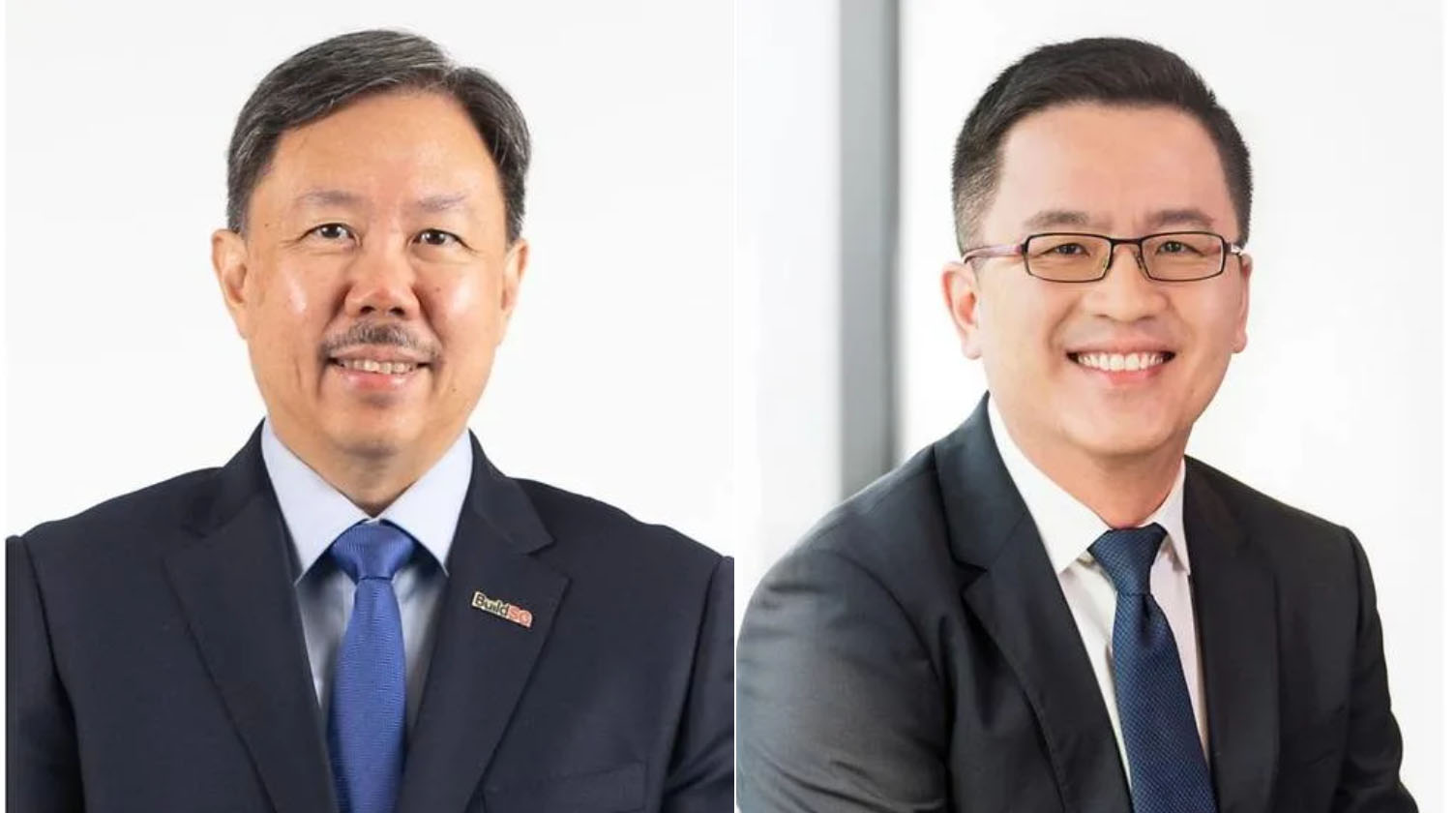The Ministry of National Development (MND) and the Building and Construction Authority (BCA) announced yesterday (21 Jul) that the CEO of BCA, BG Hugh Lim, would be replaced by Kelvin Wong Wee Siong later this year on 2 Nov 2020.
Kelvin Wong is currently the Executive Vice President (EVP) of the Economic Development Board (EDB). He will be appointed as CEO (Designate) of BCA from 27 July 2020 this month until he takes over from BG Lim in Nov. Neither MND nor BCA mentioned where BG Lim will go to after Nov.
BG Lim was awarded the SAF Scholarship in 1984 to study at the University of Liverpool where he graduated with a Bachelor of Engineering (First Class Honours) in Engineering Science and Industrial Management. He was subsequently awarded the SAF Postgraduate Scholarship in 1997 and obtained a Master of Science (Management of Technology) from the Massachusetts Institute of Technology in 1998.
Prior to Mr Lim’s current appointment as CEO of BCA, he was Deputy Secretary (Community, Youth and Sports) of the Ministry of Culture, Community and Youth (MCCY). He had previously served in the SAF for over 25 years and attained the rank of Brigadier-General (BG) in 2005. While in the SAF, he served in a variety of command and staff positions, including Chief Engineer Officer, Commander 6 Division, Commander Training and Doctrine Command (TRADOC) and Chief of Staff, General Staff.
BCA issues TOPs to Kingsford but URA says their projects failed to meet requirements
Last Dec, it was reported that the Urban Redevelopment Authority (URA) banned Chinese developer Kingsford Huray from selling its condo units after multiple owners complained about shoddy workmanship and poor amenities at its projects, including the new Kingsford Waterbay in Upper Serangoon and Kingsford Hillview Peak in Upper Bt Timah area.
One resident who paid S$735,000 for a 527 sq ft, one-bedroom unit in Hillview Peak described the furnishing as sub-par: the parquet flooring was low grade, the marble in his bathroom was cracked, the kitchen counter was stained, a glass window pane was broken and the quality of his bedroom and bathroom doors left much to be desired. “The whole unit was dusty and dirty,” he said. “I don’t even invite my family and friends over because it’s so embarrassing.”
Online, many netizens were asking how Kingsford managed to get past authorities with its shoddy workmanship.
Flash Lim: “Who are the people doing the inspections and quality and material check during construction and after completion of construction?”
Francis Ong: “How did they get the license to movein in the first place. I am pretty sure it had to clear a few checks by different agencies so the question is how do they get clearance for those previous projects?”
Tony Khoo: “I paid a deposit for a unit at kingsford waterway. When I wanted to complete the deal they changed the completion date of my unit to a later date. I decided to cancel my completion and withdraw but they initially refuse to pay back my deposit and only paid part part of my deposit after my Lawyers letters of demand.”
Robin Nayak: “Don’t we have an independent inspector?”
Leslie Tan: “I am more concerned how the license was issued and obtained in the first place?”
Ezra Viin: “Bringing shoddy construction works to Singapore and lowering our high standards. Pray hard that whatever he built will not collapse. Authorities please check that they are safe for long term accommodation.”
Syed Zul: “Yet you the Gov fail to check.”
Need TOP permit for owners to move into condo units
Generally, in order for residents to move into a new dwelling, the developer has to obtain a Temporary Occupation Permit (TOP) or Certificate of Statutory Completion (CSC). TOP is a permit that allows homeowners to occupy the building temporarily when the key requirements are met, as it may take some time to obtain the Certificate of Statutory Completion (CSC). By law, a CSC or TOP is required to occupy the building.
On the website of Building Control Authority (BCA), it said, “Before the application for TOP may be considered, the Qualified Person shall request for a joint site inspection with BCA of the completed building works. The issuance of TOP will only be considered after successful site inspection and the submission of all the required documents and clearances from the other relevant technical authorities.”
The Qualified Person is a person who is registered as an Architect with the Board of Architects (BOA) or a Professional Engineer with the Professional Engineers Board (PEB) contracted by the developer.
But strangely, BCA added on its website, “The BCA may also, at its discretion, notify the QP that site inspection is not necessary.”
It’s not known if joint inspections were carried out by BCA for any of Kingsford’s projects and if so, how it missed those shoddy work brought up by multiple condo owners. In any case, BCA must have issued TOPs to Kingsford so as to enable residents to move into its Waterbay and Hillview Peak condos. It’s not known if BG Lim knew about the shoddy work of the Chinese firm.




